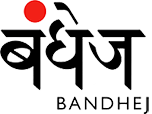
HANDCRAFTED, Sustainable Fashion
Currency

Desi Wool from KUTCH
 |
 |
Rabaris are a pastoral community who live in many parts of Kutch. They have large herds, mostly of sheep and some goats, for milk, meat and wool. The pastoral land is shrinking and their pastoralist’s life is changing. From a nomadic existence, many today live a more settled life. Due to financial compulsions, the women go out to work as farm labourers or daily wagers. There was a time when Rabari women were known for their exquisite, colourful embroideries, sprinkled with mirrors. Apart from their clothing they created embroideries to decorate their homes as well as their animals. They also spun wool for their own clothing and the dhabla (shawls) used by their men. Now, there is little leisure time for embroidery and most opt to buy fabrics from the market and get them embellished with machine embroidery and rickrack lace, by the local tailor. Their lifestyle has changed and so has their clothing. The Rabari women no longer wear the black woollen garments, which they had worn for generations.
 |
 |
Their sheep need to be sheared twice every year, once in early February and then in mid-July. Till recently, the Lavas, a Muslim community from Barmer, would come to shear the sheep, and the pastoralists gave them some wool in exchange for their labour. Earlier, there was a demand for this local wool. The market today is flooded with imported Australian merino wool and the demand for desi wool has decreased. So the shearers from Barmer, who sheered the wool and took most of this back to the Badmer mandi have stopped coming. This has created a huge problem as the pastoralists now have to pay to get the sheep sheared, something they cannot afford. Also, they have to find a way to dispose of the mountains of fleece, as burning it is not an option.
 |
 |
|
|
In 2016, Khamir, an NGO working with artisans in Kutch, took up the challenge of reviving the use of desi wool by inviting designers to create collections using the local wool for a bazaar at the Living Lightly exhibition that was to be held in Delhi. This was an opportunity to get direct customer feedback for the locally made products in desi wool and local leather as well as to test the marketability of these goods. Encouraged by the positive response and interest shown at the bazaar, Khamir has now started working towards reviving the entire chain from sourcing the wool to spinning the yarn and making cloth and clothing using desi wool for urban markets. Women are willing to spin and weavers willing to weave if there are sustained orders.
Wool is a versatile, hydrophobic fibre that can be used for insulating or sound proofing spaces. In Europe, experiments have been done to use the fibre as a filler material to make environmentally friendly unbaked bricks which could be stronger, and have better sound and heat insulation. This biodegradable, healthy alternative to conventional building materials would create value out of waste, as the coarse wool is not ideally suited for fashion clothing.
|












